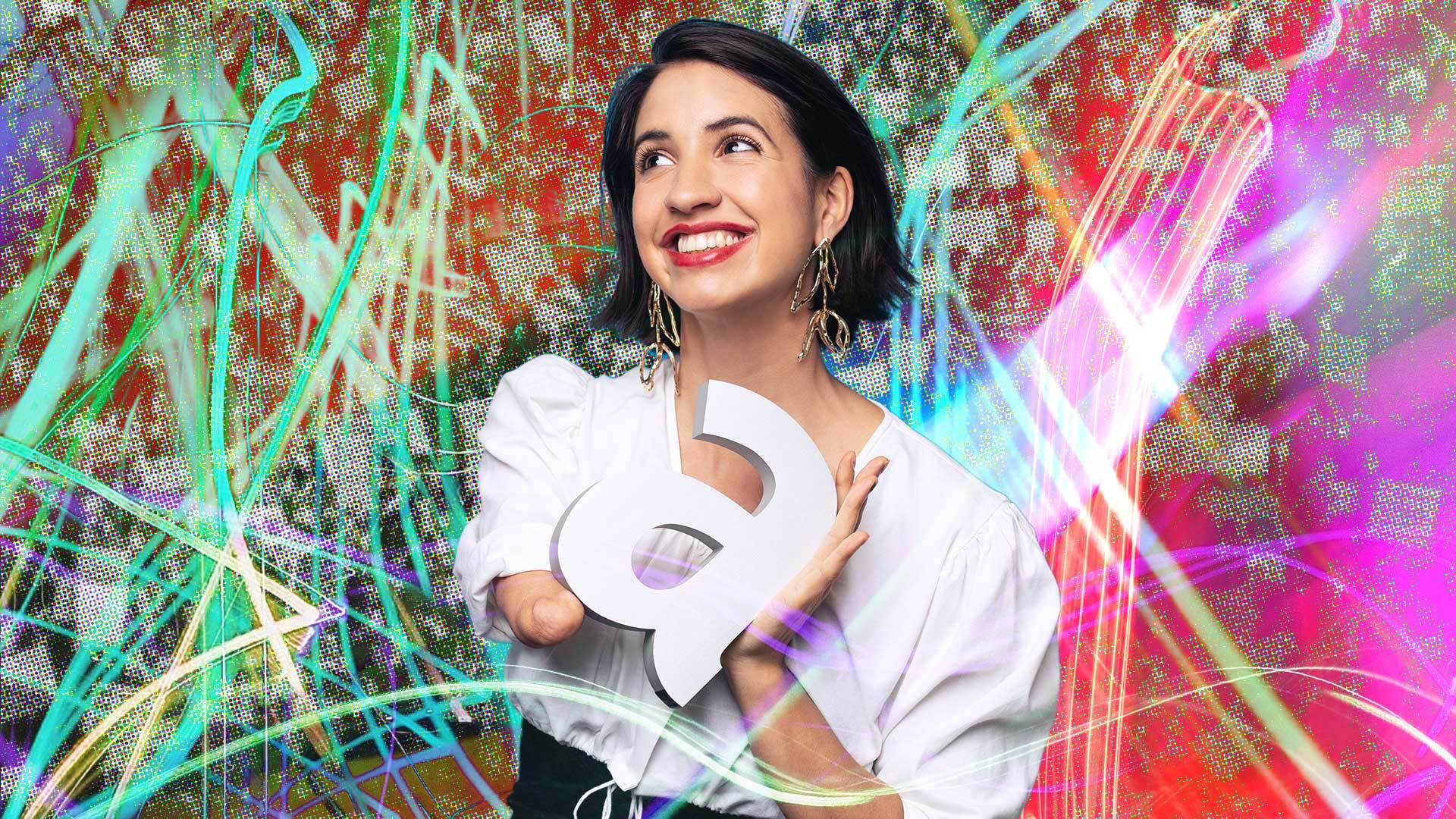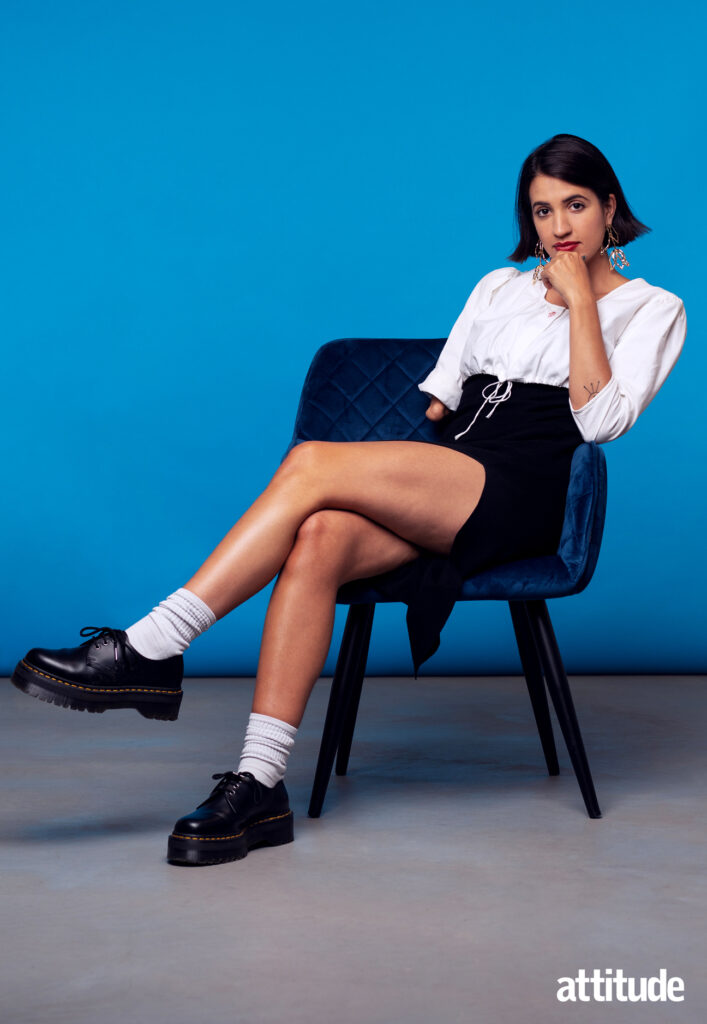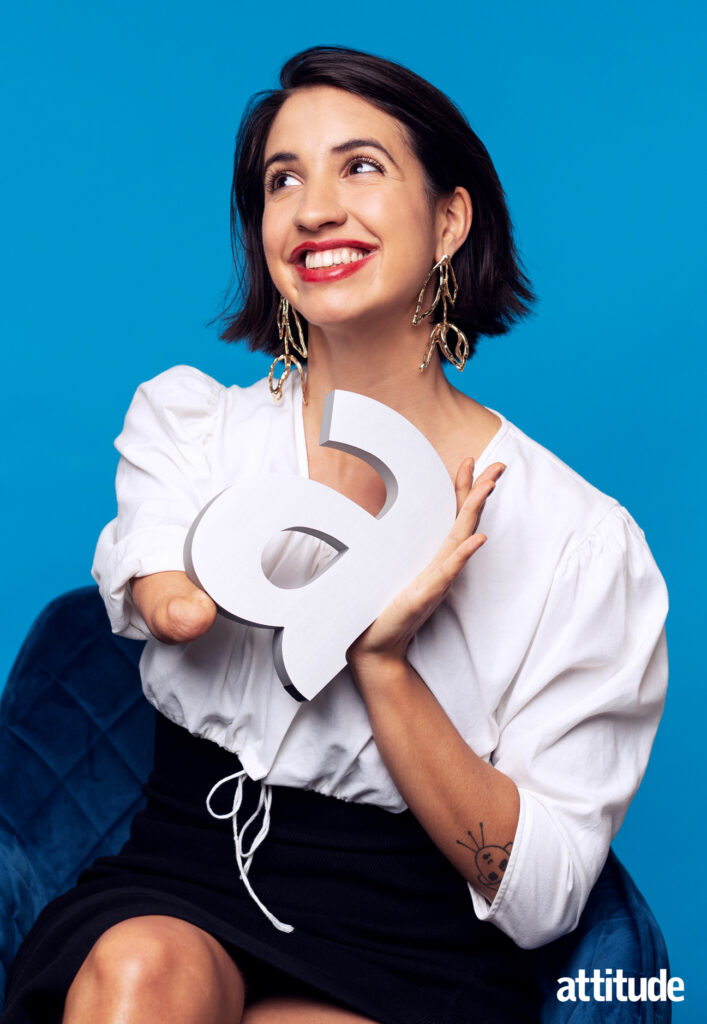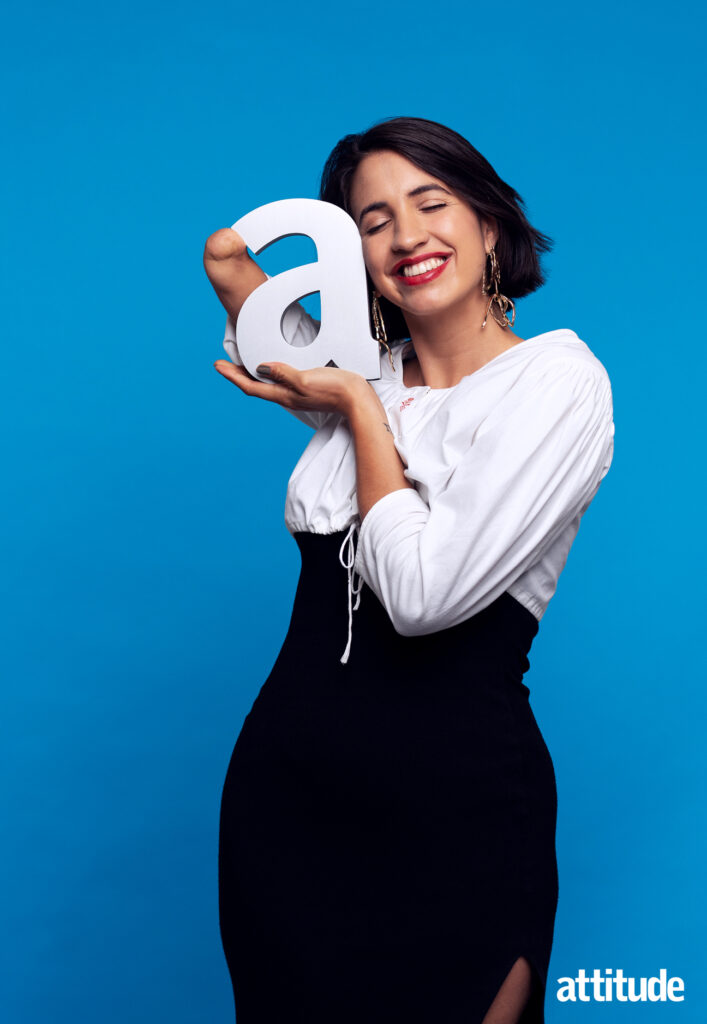Singer-songwriter Victoria Canal: ‘I can balance out the perception by just being me’
The German-born singer has won an Attitude Pride Icon Award, in association with Magnum

“It’s pretty unexpected,” says Victoria Canal on receiving her Attitude Pride ICON Award, supported by Magnum. “I definitely am so honoured, and I’m encouraged that you don’t have to do anything overly loud for it to be real.”
But that’s exactly why we have the Attitude Pride Awards – to showcase amazing individuals in our wondrous rainbow community who do so much whether they realise it or not. People like Victoria.
The German-born, Spanish-American singer-songwriter was born without her right forearm due to amniotic band syndrome. But this has never narrowed her horizons. “I think limitations are really interesting,” says Victoria. “My favourite artists use their limitations. Bob Dylan, for example, is such a brilliant lyricist because he’s not a great singer – no offence! If he were an incredibly technical singer, he probably wouldn’t have been so interested in honing the words in his songs. I find that my piano-playing is really unique to me. It’s because my voicings are very singular. They’re just what I’m going to do specifically.”

For Victoria, music has been a way to change how people define her. She wanted to be “the singer at the school instead of being the one-armed kid”. The optical challenge has trumped anything logistical.
According to Victoria, her adult life has been spent “pushing back” on”people deciding what I am before I have the chance to say”.
“I can balance out the perception by just being me.”
“People’s opinions are pretty malleable, and they will decide what you are,” she continues. “But then that can change based on what you do and how you show up in the world. So, people might pity me or think whatever even in an overly positive way. But I can balance out the perception by just being me.”
Music has always been a constant in Victoria’s world. Born in Munich, she’s lived a fairly nomadic life, calling cities such as Amsterdam, Barcelona and Dubai home. From watching her grandma play the piano for church to heading off on tour at the end of June with Hozier, music helped her cope with how much her environment was changing. It was also a universal language everyone can speak. “I just loved to do music,” she says.

On the day I speak to Victoria, she is releasing two singles – ‘Shape’ and ‘She Walks In’. Both tracks are the first time she has addressed body image and body dysmorphia in her music, although it seems that they’ve always been a part of her experience.
For example, Victoria’s 2022 EP, ‘Elegy’, is a beautiful depiction of grief inspired by someone close to her being gravely ill. That inspired Victoria to take care of her own body better. Between that and therapy, Victoria says it “came to light that body dysmorphia is a very real experience that I’ve had, and that the way that I see myself is apparently not the way that I am at all.”
“It’s all about uncovering what people aren’t really talking about.”
She continues, “Whatever I’m thinking about all the time is what I’m going to write about in the music.” Victoria adds, “I think writing deep stuff that really analyses and uncovers and sews back together parts of myself is what’s interesting to me. It’s all I really care about when I read or watch movies or have conversations. It’s all about uncovering what people aren’t really talking about. So that’s what I try to do with the songs I write, too.”

And her work has struck a chord with many. She also says she’d “love” to address queerness with the same frankness as disability in her music. “In the past, I have said things like, ‘What does my arm have to do with my music? And what does being gay have to do with my music? But I’m realising, actually, there’s a lot of joy in talking about the things that make the person up; you don’t have to divide them and be so black and white about it.”
“It’s important to talk about our experiences across the board.”
When Victoria was awarded the Rising Star Award at the Ivor Novello Awards in May 2023, it was a real “pinch-me moment”, she says. In her acceptance speech, she spoke of the representation she wishes she’d had growing up and how she values that she can now be that for someone else.
Representation is improving, Victoria believes, albeit slowly. And just as we’ve become more familiar with language around trans and non-binary identities, Victoria hopes we can do the same for disability. “It’s important to talk about our experiences across the board – mental health, sexuality, disability, gender expression. The more that we put them out in the open, the better our mental health will be, and our connectedness to others in a time where everything seems pretty segregated or divided in terms of political opinion. Any way that we can counteract that, I think, is really healing. And important.”
The Attitude July/August issue is available to download and order now.
